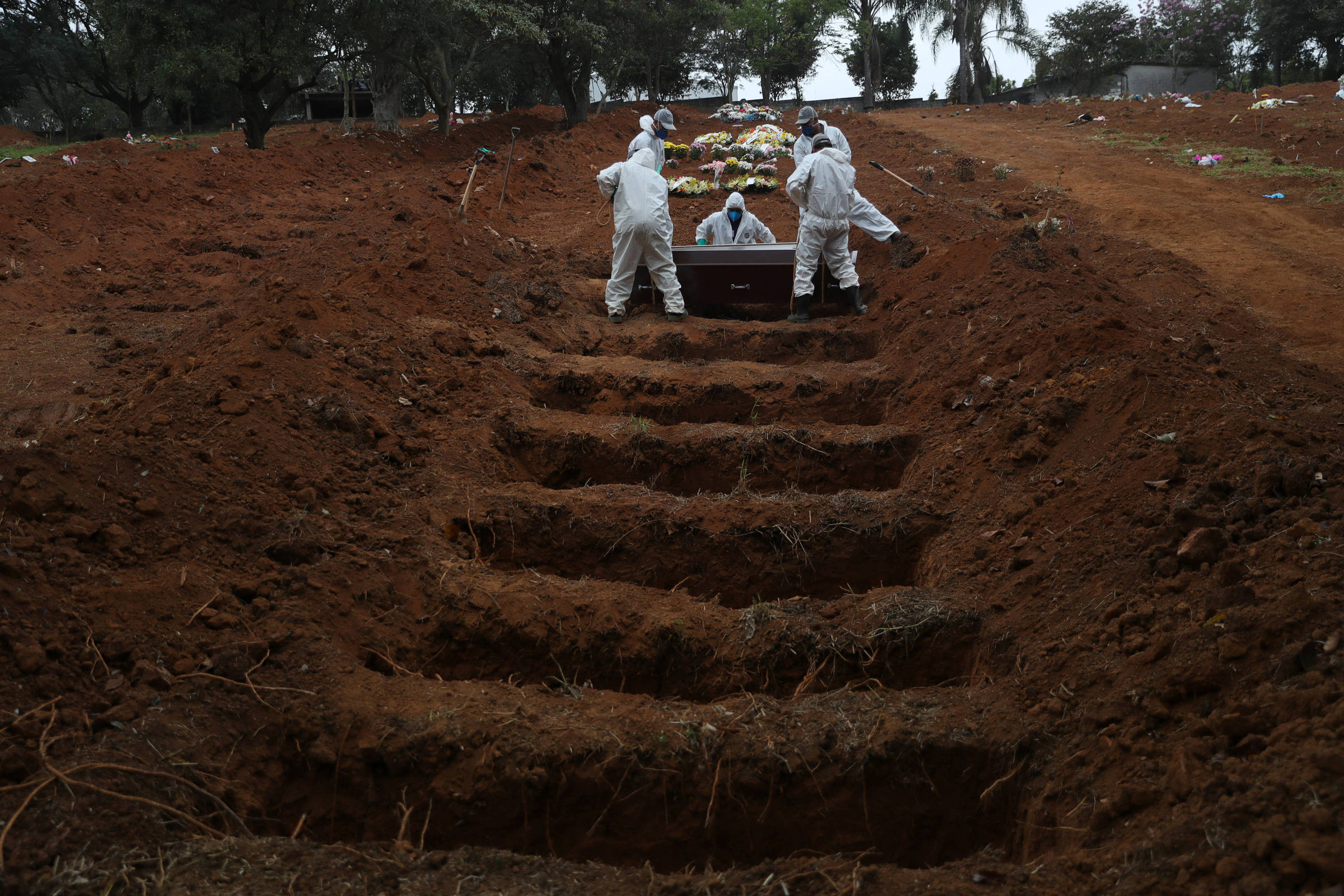RIO DE JANEIRO, BRAZIL – São Paulo governor João Doria announced on Thursday, March 11th, the tightening of quarantine throughout the state.
As of Monday, March 15th, all regions will be under stricter measures for a period of 15 days, the time needed for the measures to take effect, according to the government. There will be a curfew in place between 8 PM and 5 AM, and restrictions on churches, recently included in the state’s list of essential activities, and on sports activities, as well as a ban on beach and park access.

An estimated 4.5 million people will not be allowed to circulate in the São Paulo metropolitan area.
In the new phase, takeout services will be completely restricted in all sectors, such as food – only drive-thrus will be allowed to operate, and takeouts will no longer be allowed on-site. Building material stores, religious celebrations, and collective sports activities are also forbidden. Remote work will be mandatory for non-essential administrative activities, including private offices and public bodies.
Masks are also recommended for both indoor and outdoor activities, including small gatherings at home. Between 8 PM and 5 AM, people should only leave their homes in case of absolute need, and crowds are banned.
Schools in the state network will only remain open for meals and distribution of materials, with advance scheduling. The same recommendation was also made for the private schools, which are allowed to make their own decisions. The public school system will also anticipate the April and October recesses to March 15th to 28th. “If need be, we will advance vacations too,” said the Secretary of Education Rossieli Soares.
The government also recommended schedules for workers to take public transportation in order to prevent crowds. The suggestion is for industrial workers to use public transportation between 5 AM and 7 AM; service providers from 7 AM to 9 AM; and trade from 9 AM to 11 AM.
“We can’t simply increase the number of beds. We are and will increase more, but everyone is part of this and responsible,” explained Health Secretary Jean Gorinchteyn. “The situation continued to deteriorate after the red phase and further restrictive measures are required. We are not trying to restrict life, we are trying to protect it. And science has been showing how to do this,” added Paulo Menezes, coordinator of the Contingency Center.
The measure was announced one day after the government reported that the health systems of 32 cities in the state of São Paulo had collapsed, with 100% of beds occupied. The data referred to last Monday.
According to the government, this figure increased to 53 on Thursday. In the press conference in which he announced the measures, Doria began his address by showing a video, which points out several healthcare centers in the state in which bed occupancy has now reached 100%.
“There are no more professionals to open more beds,” said Doria, who had previously been reluctant to implement restrictive measures in the past, despite appeals from experts. Now, he stated that the measures taken are needed, “even if it costs him his popularity.”
Health Secretary Jean Gorinchteyn pointed out that 2,046 people are waiting for a bed in the state and there is an average of 150 new ICU hospitalizations per day in São Paulo, which currently records 9,144 inpatients.
ICU occupancy rate in the state currently stands at 87.6% and at 86.7% in Greater São Paulo. The daily average of hospitalizations this week is 2,379 (9.8% more than last week), while the daily average of deaths is 12.3% higher than the preceding week: 319.
São Paulo totals 2,164,066 cases and 63,010 deaths from the novel coronavirus since the start of the pandemic. “The speed of the pandemic is much faster, affecting a higher number of people in a short period of time; several of our hospitals are already compromised,” he said. “It’s the greatest health crisis of all time,” he added.
Before the press conference, João Doria anticipated that he would announce more restrictive measures in a video released on his social networks. “Brazil is collapsing and, if we don’t stop the virus, it will be no different in São Paulo. We will need to introduce more restrictive measures. It is the only way, at this moment, to contain the surge in deaths,” he said. “No governor likes to stop economic activities,” he conceded.
Experts at the State Contingency Center had been pushing for tougher restrictive measures for weeks, but only earlier this month did the governor give in and placed the whole state under the red phase, with authorization only for essential activities, such as supermarkets, public transportation, and pharmacies.
However, schools, churches and sports, which were closed the first time the government established the red phase, were kept open this time. The decree with these rules would have been effective until March 20th, but the measures were considered insufficient, as hospitalization rates and new Covid-19 cases remained high.
The new restrictions imply the suspension of the Paulista soccer championship, the largest state tournament of its kind in the country. The Paulistão, as it is known, has played three rounds since its resumption on February 27th, and is scheduled to end in May.
Last year, the competition was interrupted on March 16th and was only resumed four months later. The fourth round of the tournament is scheduled for this weekend, before the suspension begins on Monday, March 15th.
The São Paulo Football Federation (FPF) and clubs tried to contest the government by arguing that soccer health protocol would be safe, but Doria chose to respect the Contingency Center’s experts.
Source: El Pais

